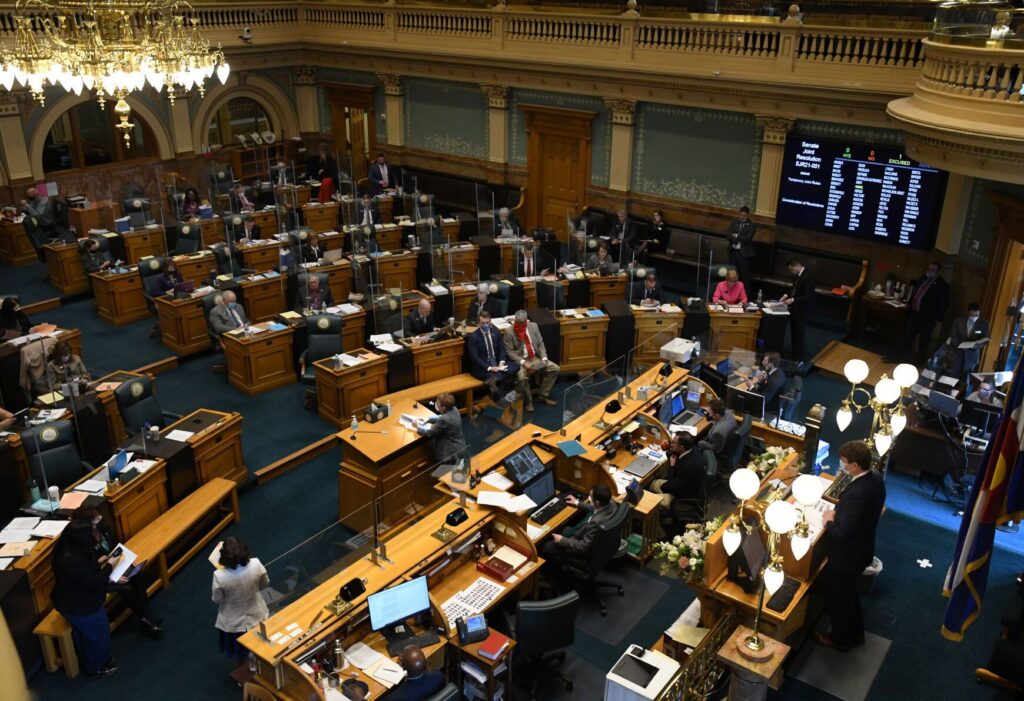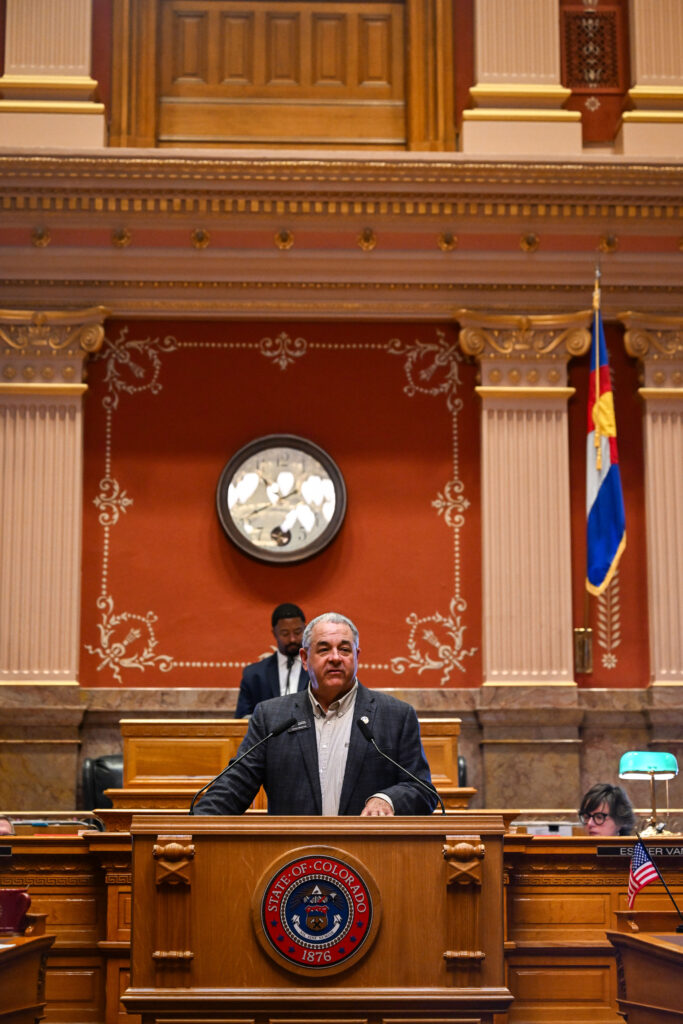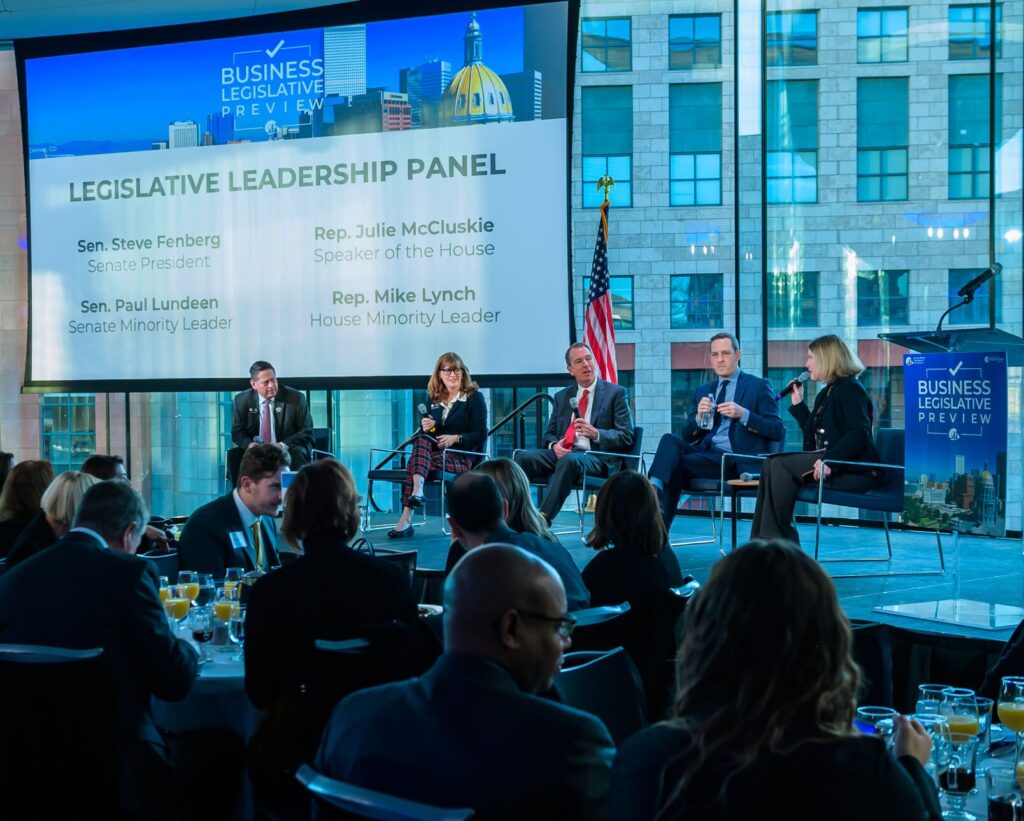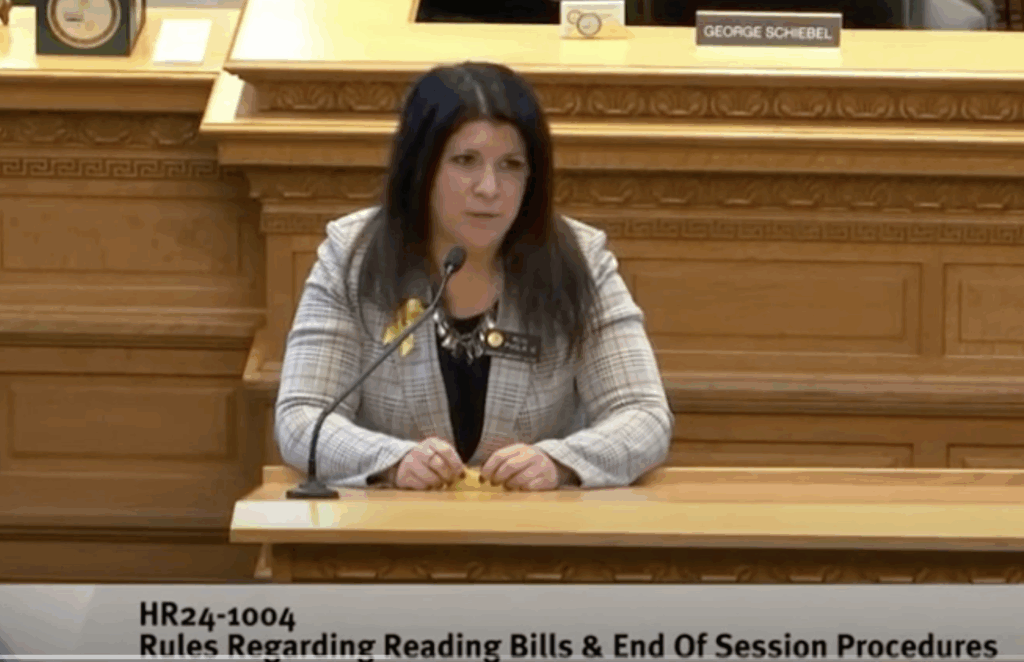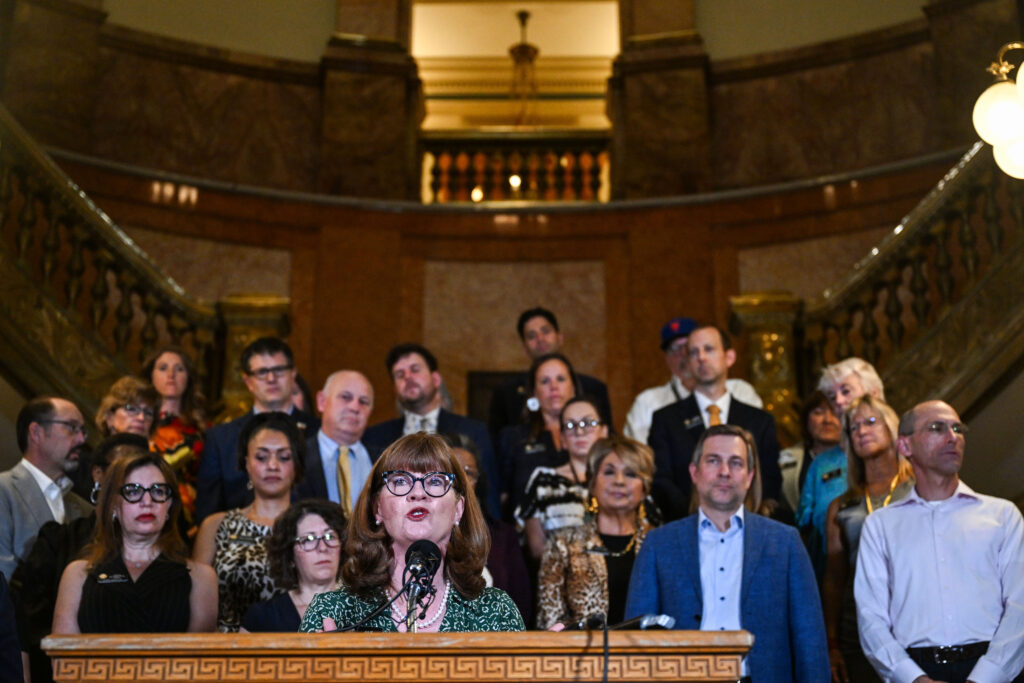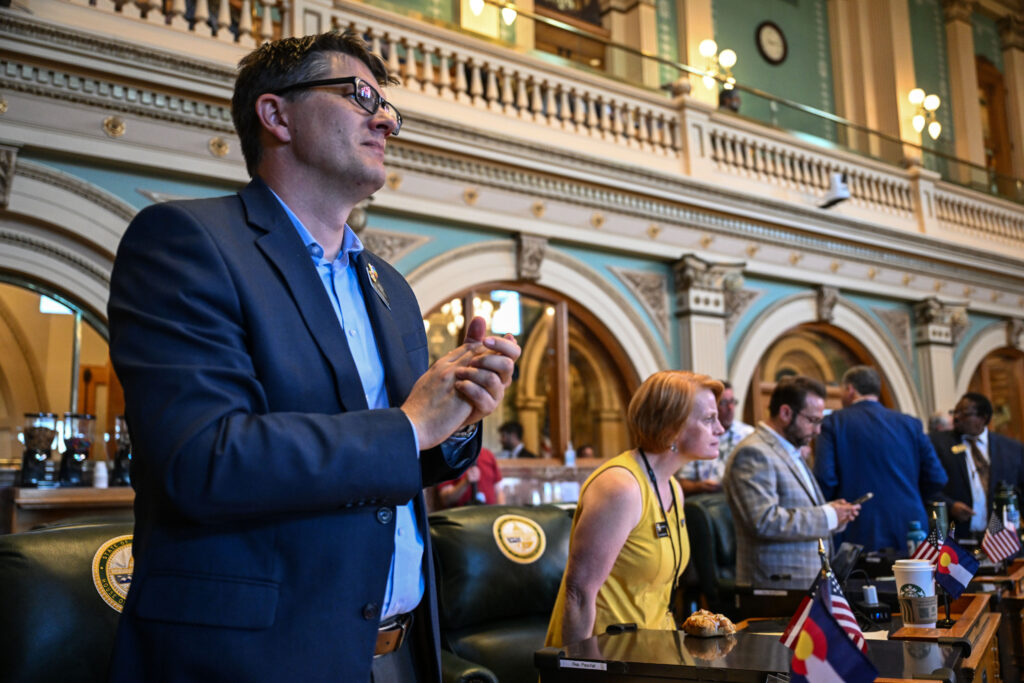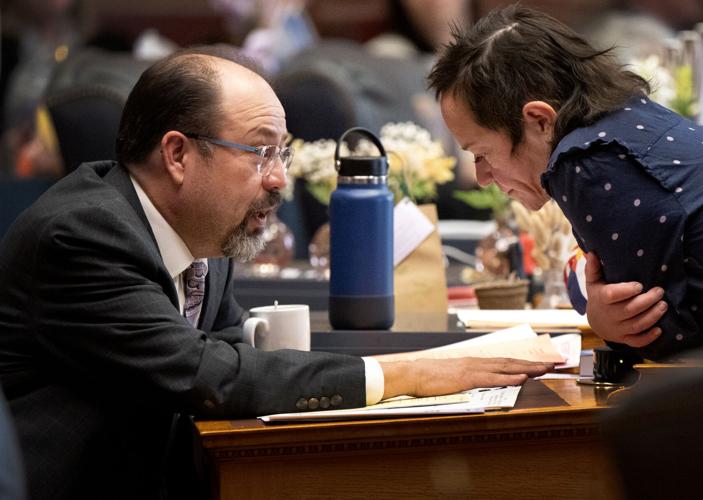Business, labor sectors remain at odds as Colorado lawmakers push union bill forward
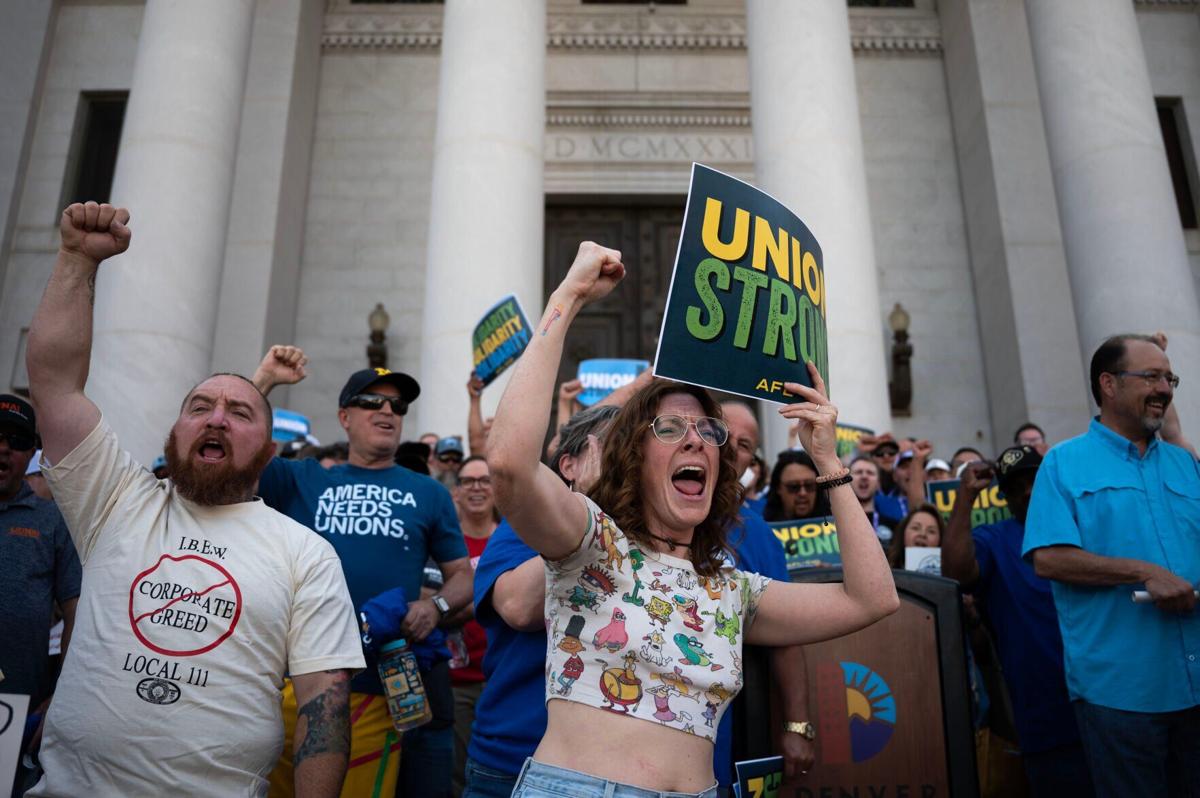
Len Harris, Community Organizer with the American Federation of Labor and Congress of Industrial Organizations, joins a group of union organizers on the steps of the Denver City and County Building during a rally on Monday, July 8, 2024. (Stephen Swofford, Denver Gazette)
Stephen Swofford The Gazette
A panel of House lawmakers in Colorado voted on Thursday evening to pass a proposal that would repeal a key requirement before unions may impose fees on non-union members.
Senate Bill 005 would repeal an 80-year-old law‘s requirement for a second election in order for a labor group to establish a “union security” agreement at a workplace. Once agreed to by the company and the union, non-union workers would be required to pay union fees.
The House Business Affairs and Labor Committee approved the bill on a 7-5 party-line vote. It will next be heard by the House Appropriations Committee.
Gov. Jared Polis has signaled multiple times that he would only support the bill if it has the backing of both the business and labor communities. Based on the way talks are going between the two sides, that isn’t likely to happen.
“I remain open to a solution that brings workers and business to the table in a way that’s stable for our state,” Polis recently told Colorado Politics. “The Labor Peace Act has been stable for eight decades. I fundamentally believe that many of these proposed changes would not be as stable, so I’m optimistic that labor and business are talking, and I’m hoping those conversations are fruitful.”
Under Colorado’s 80-year-old law, the first election to form a union must receive a simple majority to pass. The second election, which allows for the establishment of a “union security” agreement at a unionized workplace, requires a higher threshold of 75% to pass. The unions want to get rid of that second election.
The bill’s supporters argued that the current law is antiquated and that unionization is ultimately good for workers and the state economy. Critics said the current law is working and upending it will undercut Colorado’s economic gains.
Bill sponsor Rep. Jennifer Bacon, D-Denver, said being part of a union — she taught in New Orleans as her first job and she she joined the American Federation of Teachers — gave her the opportunity to connect with mentors, advocate for workplace safety, and push for better wages for herself and her fellow teachers.
Passing this bill, Bacon argued, would send a message to working-class Coloradans that their elected officials are advocating for them. She said that protecting workers is essential to strengthening Colorado’s middle class as the state’s population continues to grow.
“As we have this bigger, bolder workforce, when we think about what union jobs mean, I want you to think about that worker who is everything from a bus driver to a cafeteria worker to a teacher to a truck driver,” she told the committee. “This bill is a nod to our times, and it is a nod to the sentiment, and it is a nod to what it is that we deserve in order to thrive here.”
A ‘balanced solution’
Critics said the state risks upending a system that has served it well at a critical time for Colorado businesses.
Jamie Chavez of the Westminster Chamber of Commerce noted that the current law has provided Colorado workers and employers a “balanced solution” to labor-employer relations for nearly a century.
“It represents an effective and reasonable compromise that has protected workers’ rights to organize and collectively bargain, while simultaneously presenting Colorado as a favorable and attractive state to start, build, grow, or relocate businesses,” she said.
Removing the Labor Peace Act would allow a simple majority of workers to “effectively commandeer” a portion of employees’ paychecks, regardless of membership status, said Chavez.
Members of the chamber have expressed worries that Colorado is becoming less attractive to businesses due to regulations, and this bill, if enacted into law, would be yet another blow, Chavez said.
J.J. Ament, president and CEO of the Denver Metro Chamber of Commerce, earlier said Colorado has thrived under the Labor Peace Act.
It’s a “particularly bad idea to open up this fight,” Ament said, given where Colorado’s economy is relative to the COVID-19 pandemic, and at a time when costs are high and state competitiveness is declining.
A ‘corporate takeover’
Bacon’s co-sponsor, Rep. Javier Mabrey, D-Denver, highlighted the federal government’s recent actions noted the Trump administration’s recent firing of Gwynne Wilcox, a member of the National Labor Relations Board, which oversees the election to unionize.
Although a court order recently reinstated Wilcox, Mabrey warned that the White House would likely appeal the case to the U.S. Supreme Court, which he believes could uphold the president’s authority to permanently remove her.
The Trump administration has argued that the federal government is too bloated and too much money is lost to waste and fraud. The government has some $36 trillion in debt and ran a $1.8 trillion deficit last year, and both sides of the political spectrum agree on the need for changes. To Trump, the changes begin with shrinking the size of the federal bureaucracy.
“We are seeing a full-on corporate takeover of our federal government,” said Mabrey, adding that Elon Musk’s Department of Government Efficiency has “gutted and attempted to dismantle” the Consumer Financial Protection Bureau.
“The noise in the building suggests that this takes away worker choice, but it is the second election and its supermajority that strips workers of their freedom to decide whether or not to support unions,” the legislator said.
Labor leaders also insisted that the bill won’t force unions on anyone.
“It’s about empowering workers who want a seat at the table to negotiate fair pay, benefits, and safer working conditions and have made that choice by electing to form a union,” said Bryant Preston, president of IATSE and AFL-CIO.
Preston also argued that the current law creates “more obstacles, delays, employer intimidation and confusion.”
“Workers deserve a fair and straightforward process,” he said. “When a majority of workers vote to form a union, that decision should be respected, not subjected to a drawn-out second election.”


